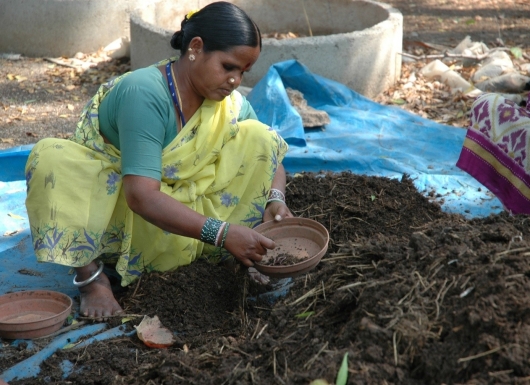Submitter: (ICRISAT)
Aerobic composting is a microbial mediated decomposition process used for recycling organic farm waste. In order to swiftly get ready for the following crop cycle, farmers in many parts of the world, burn remaining plant material in fields after harvest. This practice is known as crop residue burning. This approach has serious adverse environmental effects like GHG emission and loss of soil organic carbon (SOC), which is essential for soil fertility, health, and long-term agricultural output. Aerobic composting provides a simple and robust on-farm solution for converting the crop residues into nutrient rich compost

Aerobic composting is a versatile and adaptable waste management practice that can be successfully implemented across various agroecological zones, provided certain local conditions and resource availabilities are taken into account. For instance, semi-arid and humid regions, supporting the microbial activity are suitable, however, the heaps should be protected from moisture losses through covering or roofing.
The technology was scaled in states like Karnataka, Odisha, Bihar, Uttar Pradesh states. Across six districts in Odisha, the technology has been scaled out by supporting about 7,800 HHs from 2021 to 2024. The initiative generated about 4000 MT of compost. Four SHG managed community level aerobic compost units with annual production capacity of 100 tons were established one each in Koraput, Nabarangpur, Rayagada Gajapati of Odisha state.
Numerous public welfare programs across Asia and Africa are actively seeking scalable solutions for nature positive farming.
The availability of microbial consortium for aerobic compost and capacity building of farmers plays a crucial role in adoption and scaling of the technology. ICRISAT can play a pivotal role in the capacity building of diverse stakeholders by providing technical support (handholding) through its bilateral projects.
Rajesh Pasumarthi: rajesh.pasumarthi@icrisat.org
Gajanan Sawargaonkar: gajanan.sawargaonkar@icrisat.org
Ramesh Singh: ramesh.singh@icrisat.org